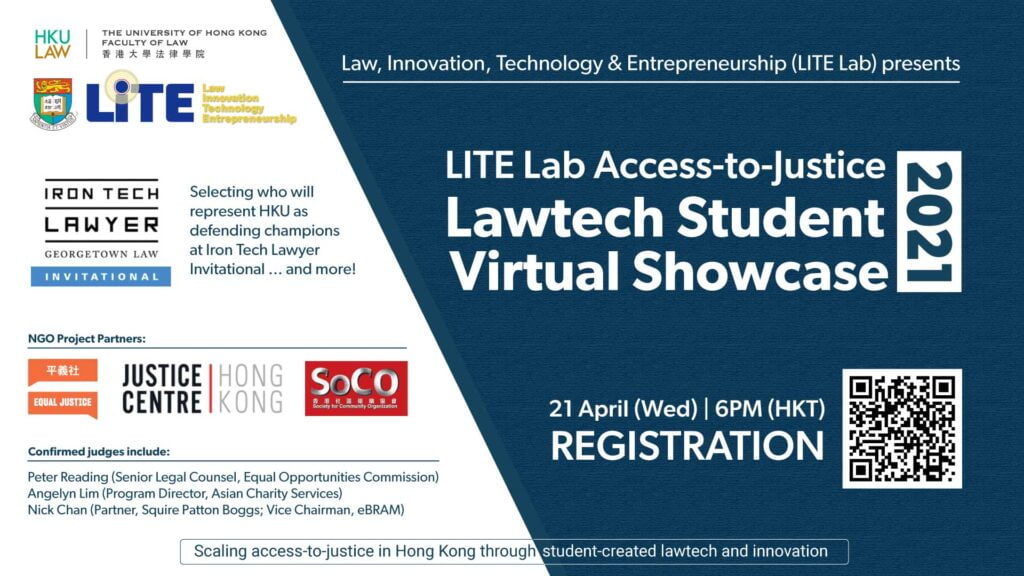Written by Josh Lee Kok Thong
LawTech.Asia is proud to be a partner of the HKU LITE Lab’s Access-to-Justice Lawtech Virtual Student Showcase.
To be held on 21 April 2021 at 6pm HKT, the University of Hong Kong’s (“HKU“) Law, Innovation, Technology and Entrepreneurship Lab (“LITE Lab“) cordially invites industry players and students to learn more about what it is doing to better serve under-resourced impactful organisations in Hong Kong, including co-designing and creating proof-of-concepts in collaboration with Hong Kong NGOs to improve access to justice (“A2J“).
In past years, the LITE Lab@HKU student team EC Bank addressing employment compensation were the Georgetown University Iron Tech Lawyer Invitational 2020 winners, and have since set up Litex as a natural language processing (“NLP“) lawtech startup. LITE Lab’s inaugural A2J lawtech virtual student showcase, with an esteemed panel of invited judges, will decide which of this year’s undergraduate student teams will represent HKU with their projects co-designed with impactful NGOs Equal Justice, Justice Centre and SoCO to assist victims of human trafficking, refugees/ asylum seekers and low income housing tenants utilising document automation, search engines and computer vision.
The A2J Lawtech Student Virtual Showcase will also feature other LITE Lab@HKU supported student initiatives, including A2J lawtech projects created both within and outside the LITE Lab course curriculum that assist with issues such as social and environmental impact measurement, unrepresented litigants, divorce court forms and wills.
The event counts organisations such as Asian Charity Services, PILNet, Pro Bono Hong Kong, the Asia Pacific Legal Innovation and Technology Association (“ALITA“) and Legal Hackers Hong Kong as its supporting organisations, and welcomes participants to join in on 21 April 2021 (Wednesday) via Zoom as it seeks to grow the A2J Lawtech community in Hong Kong and beyond.
Interested participants should register using the button below.






